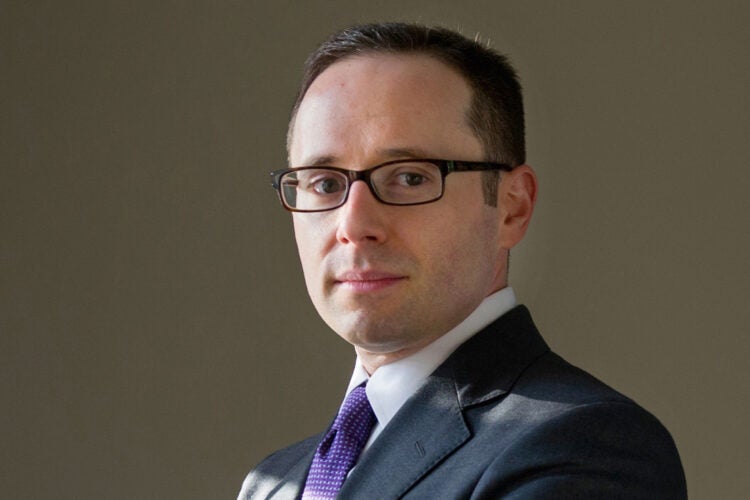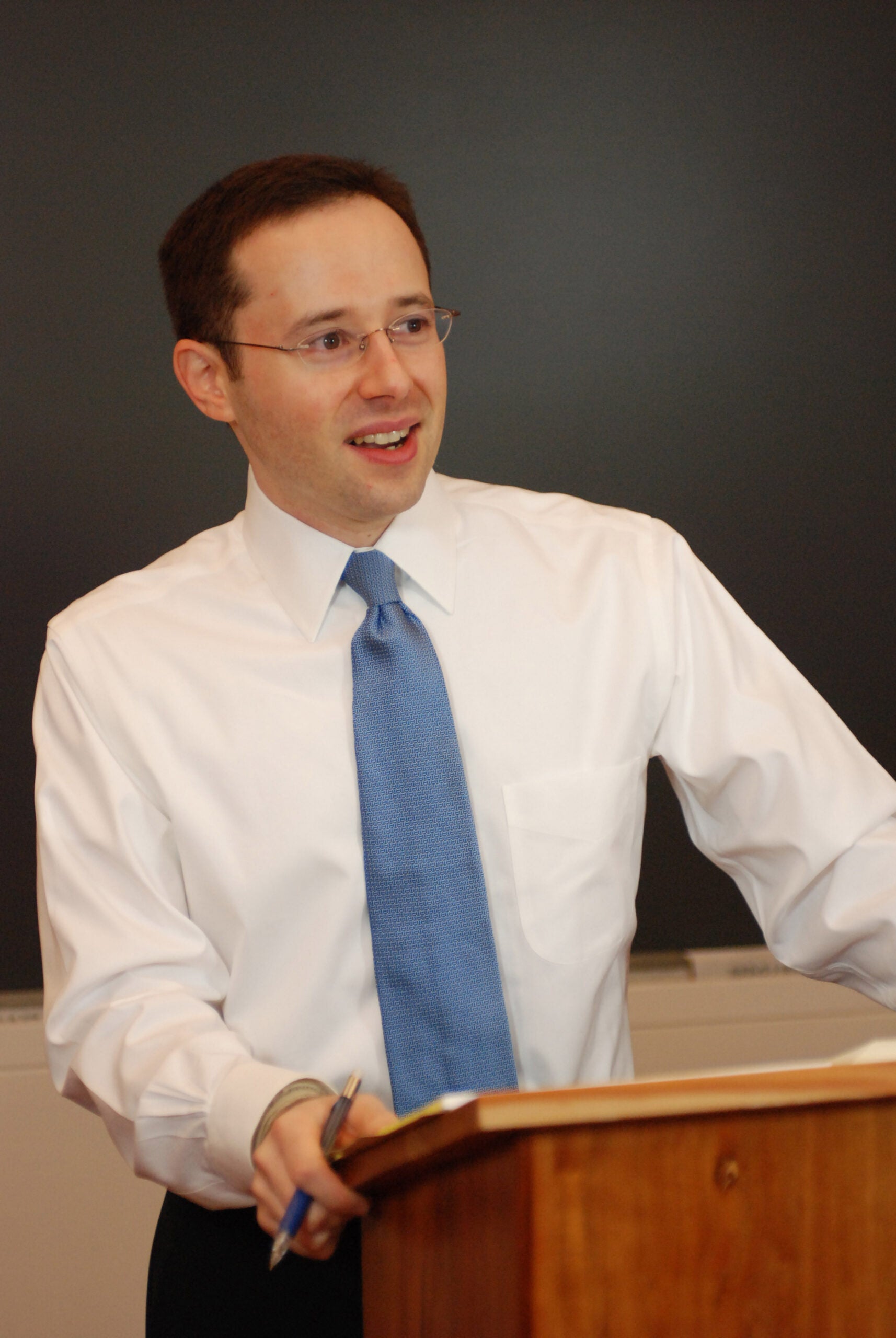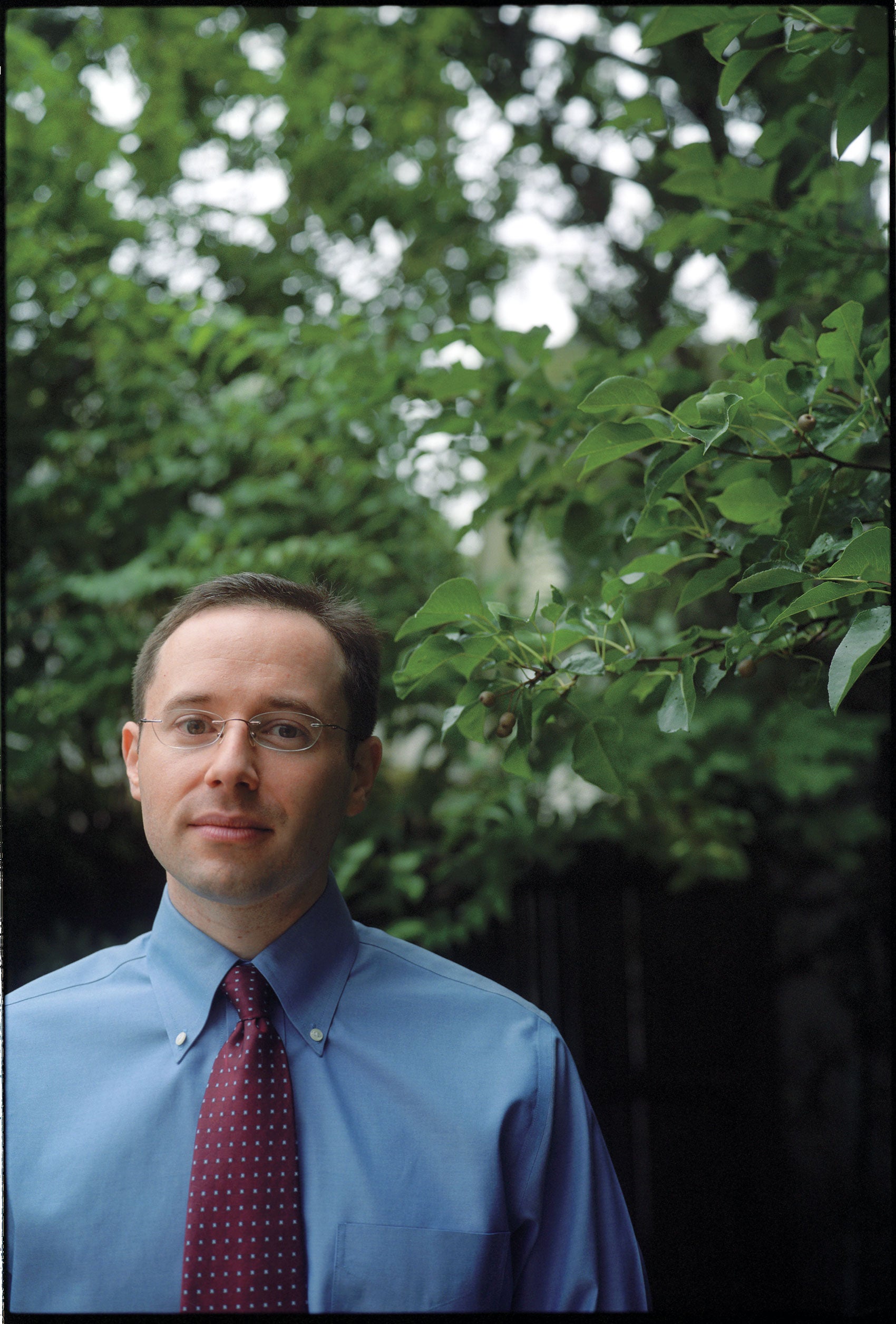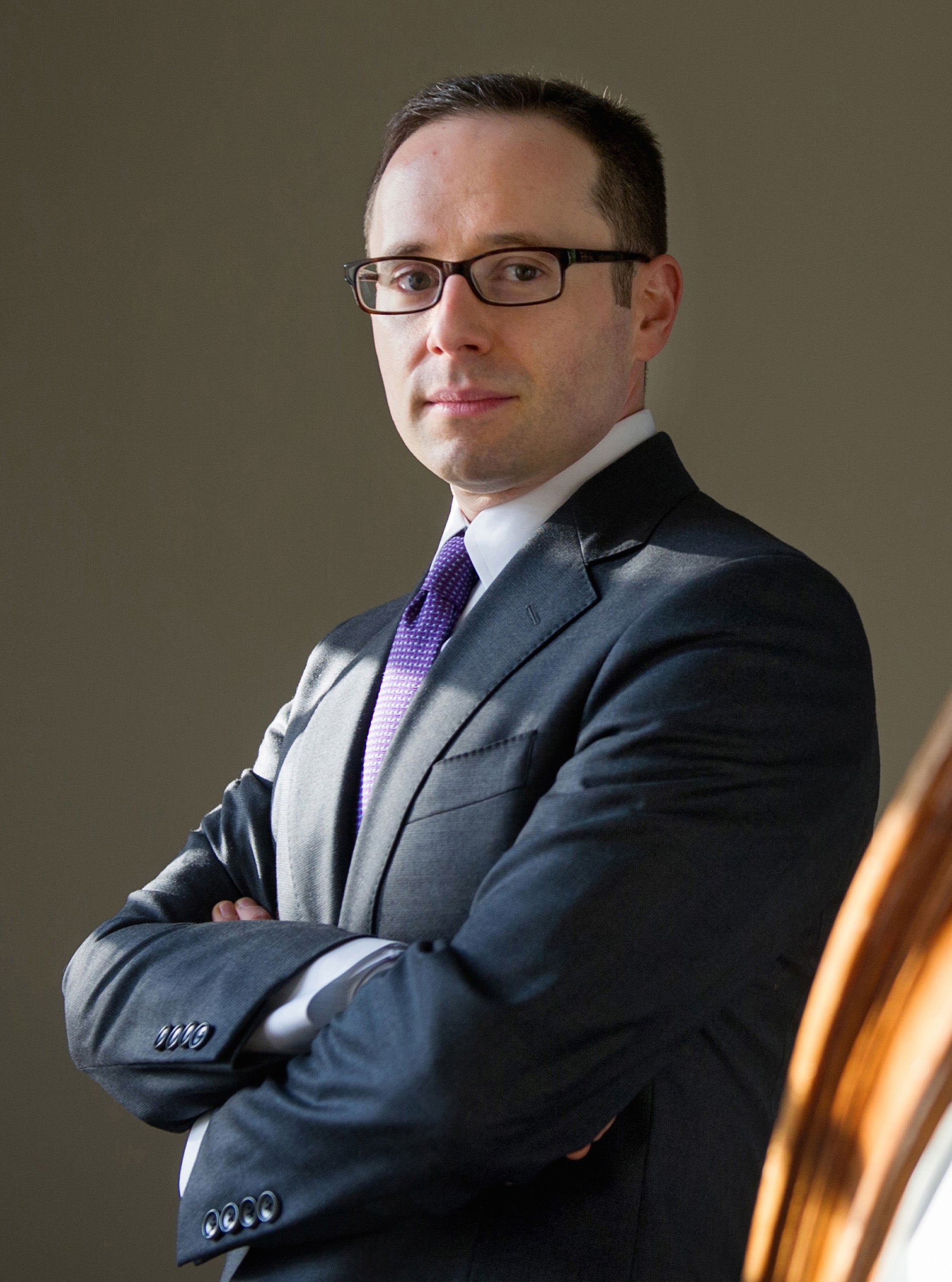People
Robert H. Sitkoff
-
Markets or Regulators: Who Decides on ESG?
October 20, 2022
An article co-written by Robert H. Sitkoff: The current discourse on environmental, social, and governance investing yields two irresistible conclusions. The first is that fiduciary…
-
A secret marriage and dementia are complicating the legal battle over Henri Blain’s $40M estate
March 22, 2021
In 2016 Henri Blain owned property in three states, was the founder of a successful string of Massachusetts beauty schools that he'd sold to an expanding salon empire, and held an estate valued at roughly $40 million. The then 78-year-old bachelor also had dementia. It left him that year incapable of caring for himself or his fortune. The consequence has been four years of legal wrangling in Probate Court between Blain's court-appointed guardians and future heirs, contested probate orders appealed to Superior Court, quarrels over guardian and lawyer fees - and a judge questioning the validity of an unannounced marriage in 2018 between Blain and a longtime friend...Harvard Law School professor Robert H. Sitkoff, who specializes in trusts and estates, says cases like Blain's, where cognitive impairment is at the heart of the debate, can continue on for years - until the individual under guardianship recovers to run their own affairs, or dies. Sitkoff refers to the familiar case of pop star Britney Spears, whose father was appointed a "conservator," or guardian, of her well-being and her finances 13 years ago. Spears' attempt to have that guardianship lifted was the focus of a recent New York Times documentary, "Framing Britney Spears."
-
Sitkoff appointed to chair Drafting Committee for Uniform Act on Conflict of Laws in Trusts and Estates
February 12, 2021
Robert H. Sitkoff, the John L. Gray Professor of Law at Harvard Law School, has been appointed chair of the Uniform Law Commission's drafting committee for a Uniform Act on Conflict of Laws in Trusts and Estates.
-
Two US law professors have challenged one of the key narratives deployed by the Principles for Responsible Investment (PRI) and others in favour of ESG investing. According to Max Schanzenbach, of the Northwestern Pritzker School of Law, and Robert Sitkoff, at Harvard Law School, the argument that ESG investing by pension trustees is mandated under fiduciary principles was usually based on a “syllogism” riddled with errors. Writing in an article destined for the Stanford Law Review next year, the professors argued that the reasoning behind this position typically followed three steps: “(1) ESG factors are related to a firm’s long-term financial performance; (2) the duty of prudence requires a trustee to consider material information; and (3) therefore a trustee must consider ESG factors”.
-
Two US law professors have challenged one of the key narratives deployed by the Principles for Responsible Investment (PRI) and others in favour of ESG investing. According to Max Schanzenbach, of the Northwestern Pritzker School of Law, and Robert Sitkoff, at Harvard Law School, the argument that ESG investing by pension trustees is mandated under fiduciary principles was usually based on a “syllogism” riddled with errors. Writing in an article destined for the Stanford Law Review next year, the professors argued that the reasoning behind this position typically followed three steps: “(1) ESG factors are related to a firm’s long-term financial performance; (2) the duty of prudence requires a trustee to consider material information; and (3) therefore a trustee must consider ESG factors”.
-
Fund Managers Are More Moral Than You’d Think
June 25, 2019
Including environmental, social and governance considerations in investment decisions is becoming of paramount importance for the fund management industry. Moreover, those principles may be coming into force in asset allocation even faster than previously thought...Legally, trustees “must consider only the interests of the beneficiary,” Max Schanzenbach of Northwestern University and Robert Sitkoff of Harvard Law School wrote. That would bar a fund manager motivated purely by ethical considerations from allowing ESG concerns to steer investment decisions. If, however, the trustee is convinced that pursuing such an investment philosophy will generate higher returns, the legal requirement would be satisfied. But the professors warn that the evidence for that is far from conclusive. Studies “have exaggerated the potential for ESG factors to generate excess risk-adjusted returns, and have failed to appreciate the instability and lack of robustness in academic findings,” they wrote.
-
Fund Managers Are More Moral Than You’d Think
June 17, 2019
Including environmental, social and governance considerations in investment decisions is becoming of paramount importance for the fund management industry. Moreover, those principles may be coming into force in asset allocation even faster than previously thought. A new survey of ESG adoption rates, from UBS Group AG’s asset management unit and Responsible Investor Research, covers more than 600 asset owners in 46 countries, responsible for more than 19 trillion euros ($21 trillion) of assets...Legally, trustees “must consider only the interests of the beneficiary,” Max Schanzenbach of Northwestern University and Robert Sitkoff of Harvard Law School wrote. That would bar a fund manager motivated purely by ethical considerations from allowing ESG concerns to steer investment decisions. If, however, the trustee is convinced that pursuing such an investment philosophy will generate higher returns, the legal requirement would be satisfied. But the professors warn that the evidence for that is far from conclusive. Studies “have exaggerated the potential for ESG factors to generate excess risk-adjusted returns, and have failed to appreciate the instability and lack of robustness in academic findings,” they wrote.
-
Robert Sitkoff has co-edited The Oxford Handbook of Fiduciary Law, a handbook that features important contributions from Sitkoff and several other HLS scholars to the growing field of fiduciary law.
-
‘Investing for Good’ Meets the Law
December 10, 2018
An op-ed by Max M. Schanzenbach and Robert H. Sitkoff. Trustees of pensions, university endowments and trust funds are facing renewed pressure to do social good while investing other people’s money. It isn’t only student activists but the United Nations and even BlackRock CEO Larry Fink who argue that environmental, social and governance investing, or ESG, will do good for the world while improving returns for beneficiaries. Thousands of investment managers have pledged to abide by a U.N.-sponsored statement of ESG principles. Yet the zealous push for fiduciaries to embrace ESG faces barriers under longstanding American law—with good reason. In general, the law says little about what people may do with their own money. But it has much to say about what trustees and other investment fiduciaries do with their beneficiaries’ money.
-
An estate plan requires planning. To put a fine point on it, a solid estate plan determines who gets what when you die, “preferably in a tax-efficient manner and with creditor protection,” says Robert H. Sitkoff, the John L. Gray professor of law at Harvard Law School. But death isn’t the sole reason for estate planning. A thorough plan will also include incapacity planning—deciding who will make decisions for you and who will take care of your children if you become debilitated. As we all know but would rather not think about, “mental and physical decay may precede death,” says Sitkoff. That’s why incapacity planning is a part of a good estate plan and is becoming more important because of our “ever-increasing human longevity.”
-
Sitkoff leads drafting of directed trust law
October 17, 2017
Robert H. Sitkoff, the John L. Gray Professor of Law at Harvard Law School, chaired the drafting committee that finalized the Uniform Directed Trust Act (UDTA), which the Uniform Law Commission (ULC) approved July 19, 2017.
-
Robert H. Sitkoff, the John L. Gray Professor of Law at Harvard Law School, has been appointed to the Uniform Law Commission (ULC) drafting committee for an Act on Electronic Wills.
-
During his first news conference as President-elect last month, Donald Trump boasted that even though he could continue to run his sprawling business empire, he wouldn't because he didn't like "the way that looks."..."A revocable trust is a wholly inadequate trust to separate from a conflict of interest," Harvard Law School Professor Robert Sitkoff told the Daily News. "Trump has the power to override any decisions … It is not a functional separation, only a formal separation."
-
Trust Records Show Trump Is Still Closely Tied to His Empire
February 5, 2017
Just days before his inauguration, President-elect Donald J. Trump stood beside his tax lawyer at a Midtown Manhattan news conference as she announced that he planned to place his vast business holdings in a trust, a move she said would allay fears that he might exploit the Oval Office for personal gain. However, a number of questions were left unanswered — including who would ultimately benefit from the trust — raising concerns about just how meaningful the move was...Robert H. Sitkoff, a professor at Harvard Law School, said the new details in the trust documents were unlikely to resolve the apparent legal problems with the Old Post Office site.“Formally he is no longer the owner, but functionally he still is,” he said.
-
No candy-coating lack of charity at Hershey School
November 6, 2016
Here amid the screaming riders of the Hersheypark roller-coasters and delighted customers of Hershey's Chocolate World is an educational institution unlike any other: a boarding school for poor kids that has more money than it can spend. Gushing with cash, the charitable Milton Hershey School has amassed more assets than every elite private college-prep school in the nation. ... Robert Sitkoff, a Harvard Law professor who has studied the Hershey School, said that when a charity "has resources out-of-proportion to its mission, you invite waste and mismanagement because there is all this slack. The trend in the law is to expand the charitable purpose when there are more resources, not buy golf courses."
-
A chocolate war is about to heat up in the U.S.
September 22, 2016
When an Oreo-flavored chocolate bar hits the shelves in the U.S. soon, most consumers will look at it as just another treat. But Wall Street being Wall Street, this innocent indulgence is way more than that. The little chocolate bar is really a howitzer in a rolling 15-year battle by a parade of suitors to take over one of the great iconic brands: Hershey Co...As if that weren’t bad enough, an unusual Pennsylvania law gives the state’s attorney general power to block Hershey takeovers, even when the trust wants to sell. Hershey is a big employer in Pennsylvania. Locals, perhaps rightly, fear that they could lose their jobs in a takeover as a result of cost cutting. Meanwhile, Pennsylvania attorneys general, who oversee the trust by law, have a habit of running for governor. This means they’re often tempted to do what’s “considered expedient locally,” says Harvard Law School professor Robert Sitkoff, an expert on charitable trusts.
-
...Given this show of discipline, it may come as a surprise to learn that in recent years, some serious behavioral issues have convulsed the Milton Hershey School. But the problem isn’t the students. The problem is the adults in charge. Thanks to a historic gift by M.H.S.’s founder, the Hershey Trust Company has an endowment of $12.3 billion and an ownership stake in Hershey Company, giving it control of the candy dynasty behind Kit Kat, Reese’s and Hershey’s Kisses, to name a few. With Hershey now the subject of a $23 billion takeover bid, the trust is enduring one of its periodic turns in the klieg lights, and the timing is hardly ideal. A leaked internal memo has revealed back-stabbing, allegations of insider trading and the threat of something called a “suicide parachute.”...For good measure, the state legislature passed a law that year mandating that Hershey cannot be sold without the approval of the attorney general. While arguably a boon for the community, the law, according to Robert H. Sitkoff, a professor at Harvard Law School, was also indefensible. “Imagine if the legislature of New Jersey passed a bill that said Princeton had to invest more than half of its endowment in one local company?” Mr. Sitkoff said. “That’s what the Pennsylvania Legislature did in 2002. It’s outrageous. The trust is supposed to be rescuing needy kids.”
-
Hershey Trust reaches in-principle reform agreement
July 25, 2016
The board of the charitable trust that controls Hershey Co said on Friday it had reached an in-principle agreement with the Pennsylvania Attorney General's office that would avoid a legal row in exchange for reforms in how it is run. The settlement could provide stability to the trust following months of infighting and confrontation with the attorney general's office. It could also offer the clarity needed for Mondelez International Inc to make a new approach to acquire Hershey...In 2002, the trust cited the need for diversification as a reason of putting Hershey up for sale. Hershey then attracted a $12.5 billion offer by chewing gum maker Wm. Wrigley Jr. Co. However, the deal was abandoned after Pennsylvania's Attorney General successfully petitioned a court to block the offer amid opposition from the local community. "This portfolio that is meant to rescue needy children is being exposed to needless risk that could be diversified away without compromising expected return." said Robert Sitkoff, a Harvard Law School professor specializing in wills, trusts, estates, and fiduciary administration.




